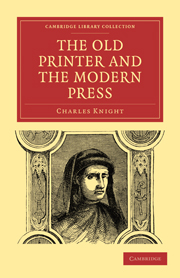Summary
In the first book printed in the English language, the subject of which was the ‘Histories of Troy,’ William Caxton, the translator of the work from the French, in his prologue or preface, says, by way of apology for his simpleness and imperfectness in the French and English languages, “In France was I never, and was born and learned mine English in Kent, in the Weald, where I doubt not is spoken as broad and rude English as in any place of England.” The Weald of Kent is now a fertile district, rich in corn-land and pasture, with farm-houses and villages spread over its surface, intersected by good roads, and a railway running through the heart of it, bringing the scattered inhabitants closer and closer to each other. But at the period when William Caxton was born, and learnt his English in the Weald, it was a wild district with a scanty population; its inhabitants had little intercourse with the towns, the affairs of the busy world went on without their knowledge and assistance, they were more separated from the great body of their countrymen than a settler in Canada or Australia is at the present day. It is easy to understand therefore why they should have spoken a “broad and rude English” at the time of Caxton's boyhood, during the reign of Henry V. and the beginning of that of Henry VI.
- Type
- Chapter
- Information
- The Old Printer and the Modern Press , pp. 1 - 18Publisher: Cambridge University PressPrint publication year: 2010First published in: 1854

